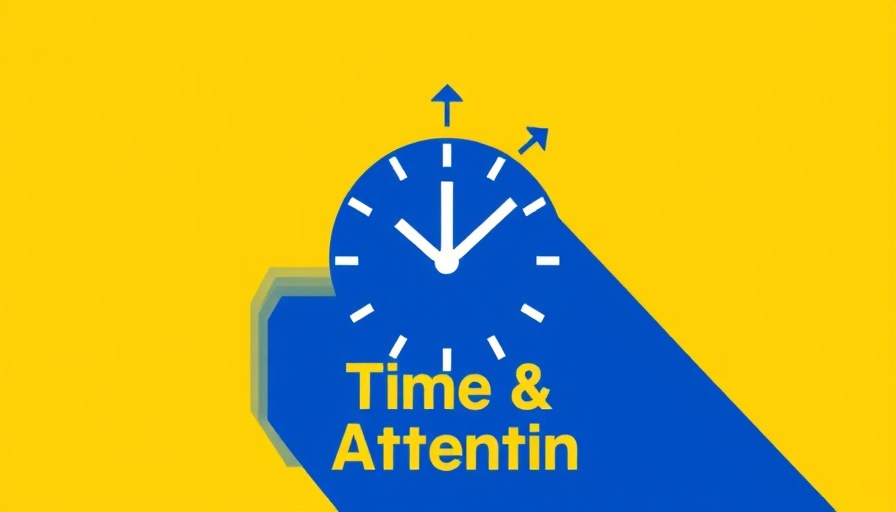
Understanding Procrastination: The Science Behind Delay
Procrastination is more than just putting off tasks; it often stems from complex emotional triggers. It's a phenomenon that many entrepreneurs and executives face, particularly those under pressure. In a recent podcast episode by Chris Bailey, insights were shared that delve into the psychology of procrastination, unpacking elements like aversion, impulsiveness, and perfectionism that fuel this behavior.
The Triggers of Aversion and Their Impact on Productivity
Aversion plays a significant role in procrastination. People naturally gravitate away from tasks that induce discomfort or anxiety. By understanding what triggers your aversion—whether it's fear of failure or overwhelming tasks—you can devise strategies to confront and overcome these barriers. Chris emphasizes the importance of recognizing these triggers, allowing individuals to transform daunting tasks into manageable steps that foster progress.
Impulsiveness, Perfectionism, and the Logic War in Our Minds
Among the many reasons people procrastinate, impulsiveness and perfectionism are paramount. Those with a perfectionistic mindset may avoid starting tasks due to fear of not meeting their own high standards, leading to an endless cycle of delay. Conversely, impulsive individuals may struggle to prioritize tasks, succumbing to distractions that deviate them from their intentions. Understanding this 'logic war' that occurs in our minds is crucial as it allows procrastinators to develop personalized approaches that mitigate these tendencies. For example, setting clear, achievable goals can provide a pathway to clarity and focus, regardless of one's natural inclinations.
Strategies to Overcome Procrastination: Aversion Journaling
One innovative technique mentioned in the podcast is aversion journaling. This practice involves writing down tasks that provoke aversion and analyzing the underlying reasons for these feelings. By externalizing thoughts and feelings, individuals can confront their fears in a tangible way, gaining insight that can foster action. This technique has been highlighted in various productivity studies as an effective method to dismantle the mental barriers that procrastination erects.
The Art of Making Tasks More Challenging to Boost Engagement
Chris Bailey also proposes that making tasks more engaging can counteract the tendencies toward procrastination. By introducing challenges or gamifying tasks, individuals can recreate a sense of motivation that transforms mundane duties into stimulating challenges. This shift not only decreases the desire to procrastinate but also enhances overall productivity and satisfaction.
Future Predictions: The Landscape of Productivity Tools and Their Impact
Looking ahead, the future of productivity will likely revolve around innovative tools and methodologies designed to minimize procrastination. As more entrepreneurs and executives seek ways to optimize their time and efficiency, embracing technologies such as AI-driven task management applications may become commonplace. These tools can analyze individual behavior patterns and suggest personalized productivity strategies, thus adapting to the user's responses and needs.
Embracing the Journey: Inspirational Takeaways
It's important for professionals to recognize that overcoming procrastination is a journey. Embracing self-compassion and understanding the psychological factors at play can not only help mitigate the urge to procrastinate but also engender a healthier work-life balance. As Chris Bailey wisely notes, taking small but consistent steps toward productivity allows individuals to cultivate a more intentional and meaningful approach to their tasks.
Take Action: Implementing Change in Your Work Life
Procrastination can seem daunting, but by implementing these insights—such as aversion journaling and introducing challenges—executives and entrepreneurs can foster a proactive mindset in their work life. By taking conscious steps to confront and conquer procrastination, you can reclaim your time and enhance your overall productivity. So, why not start today? Challenge yourself to reflect on what tasks you’ve been avoiding, and think about how you can tackle them in small, manageable segments.
 Add Row
Add Row  Add
Add 




Write A Comment